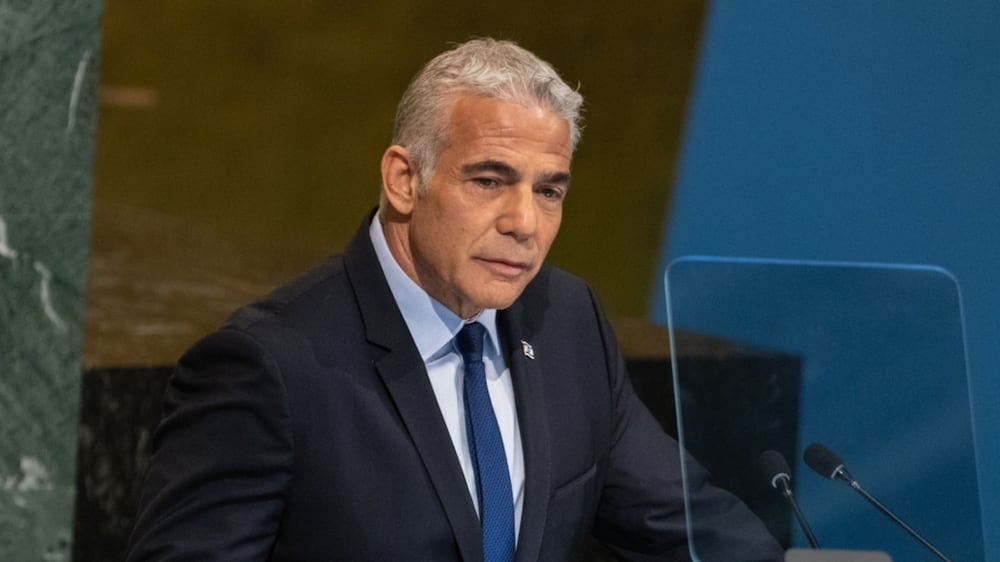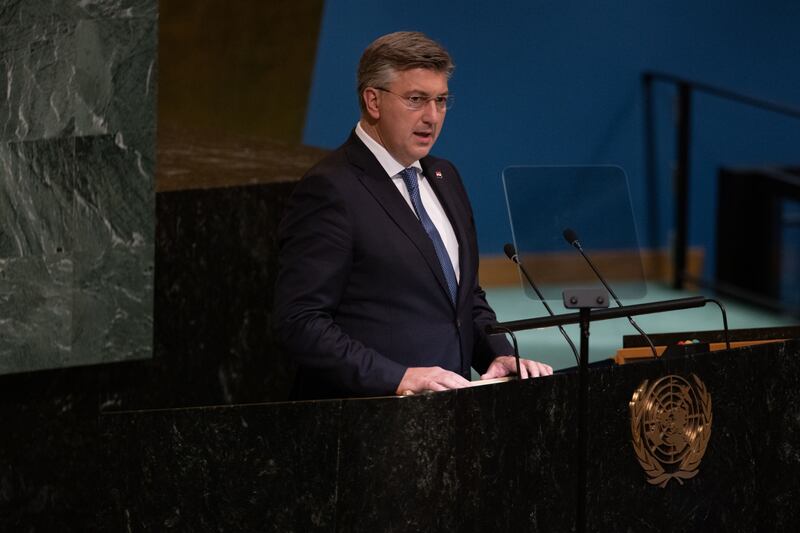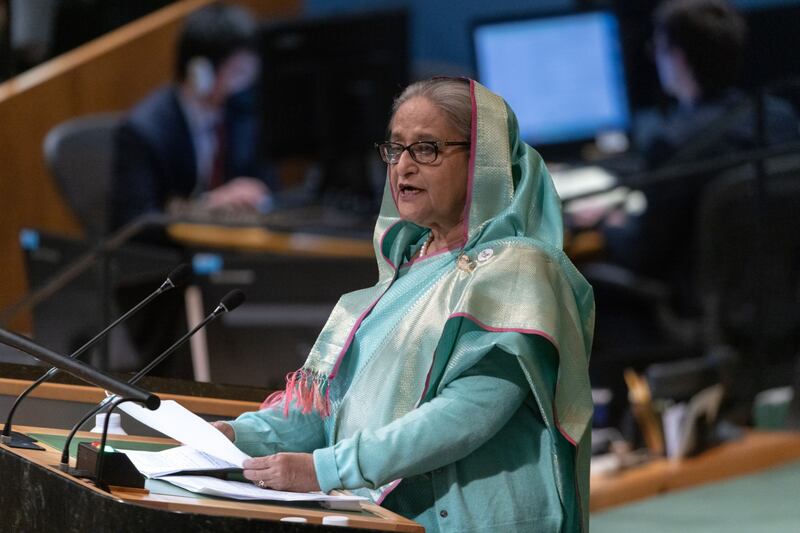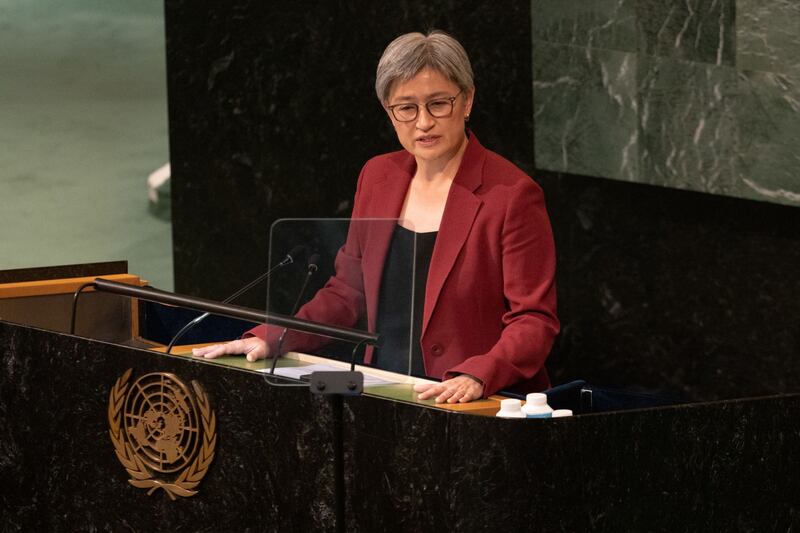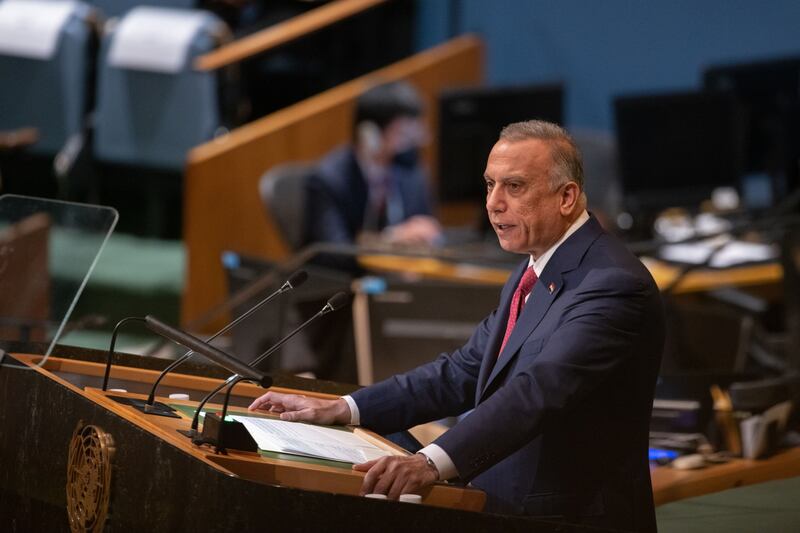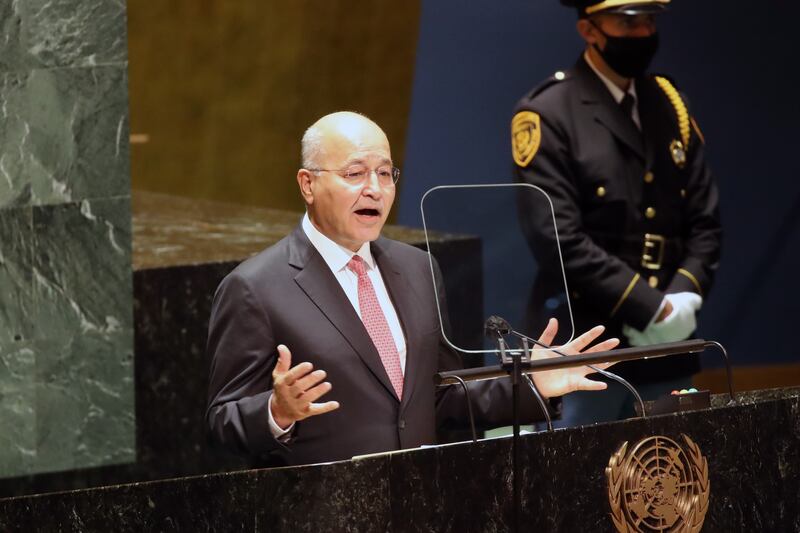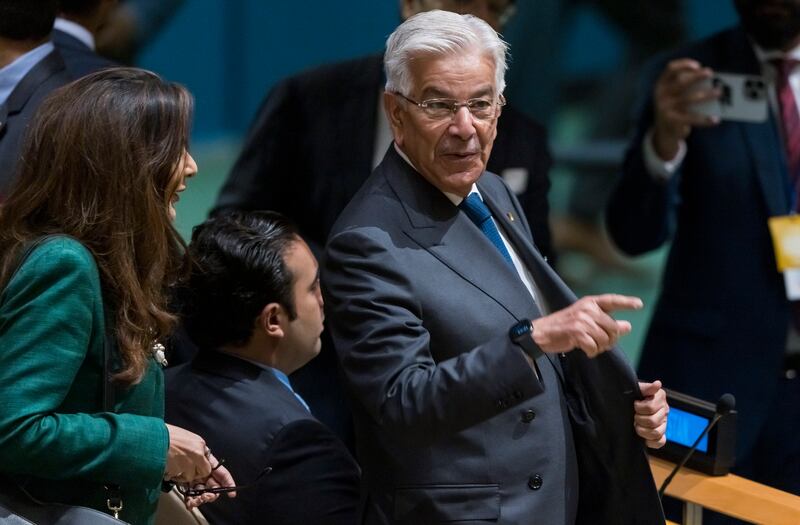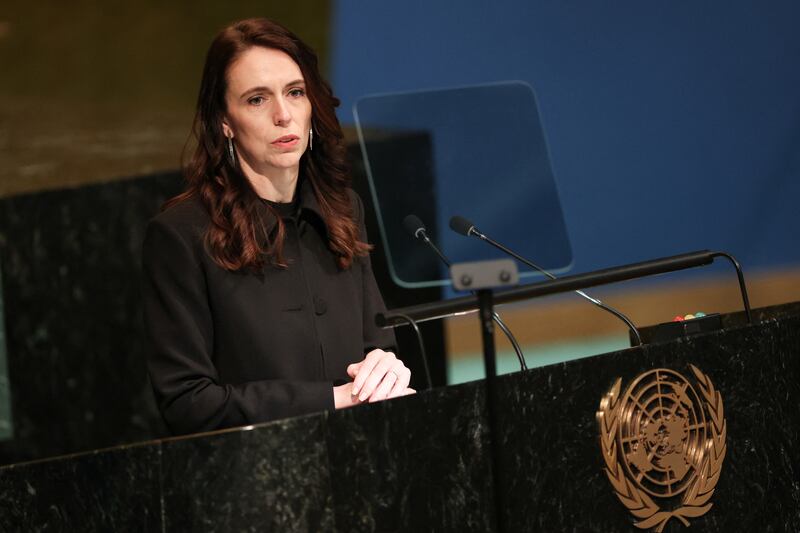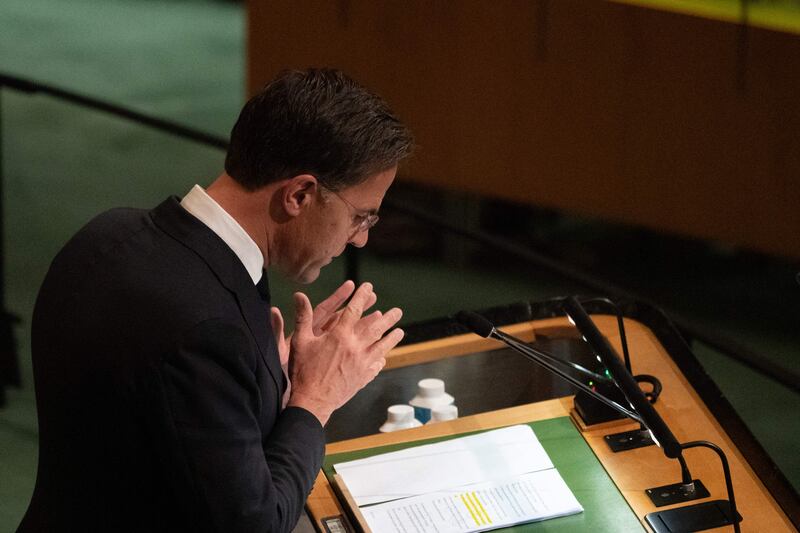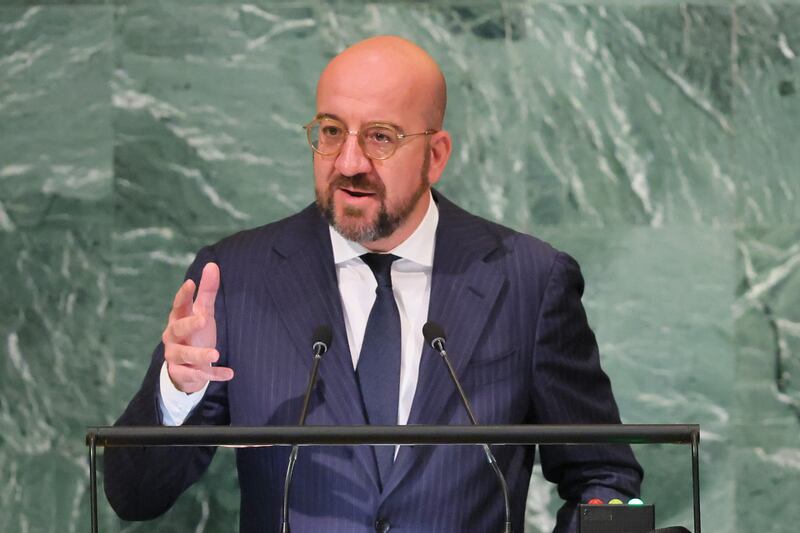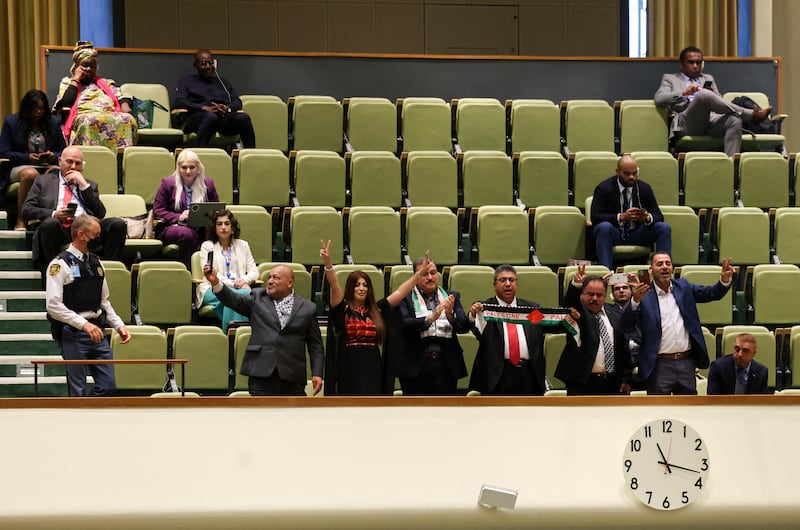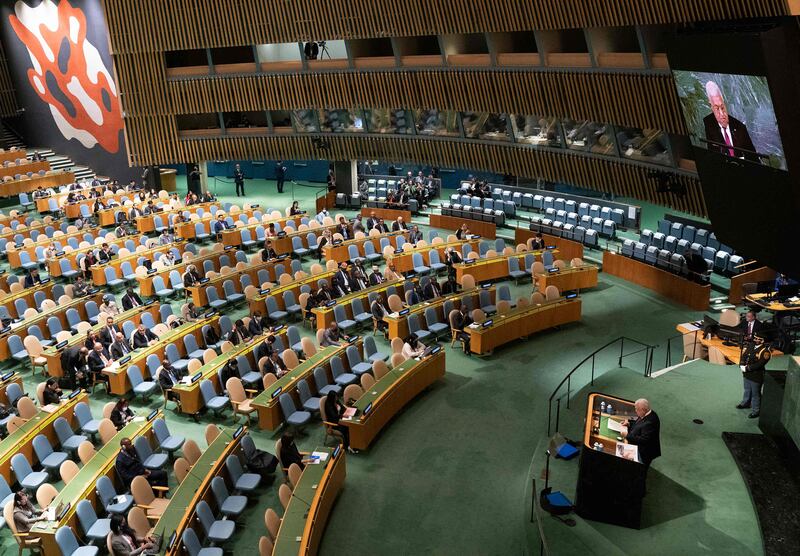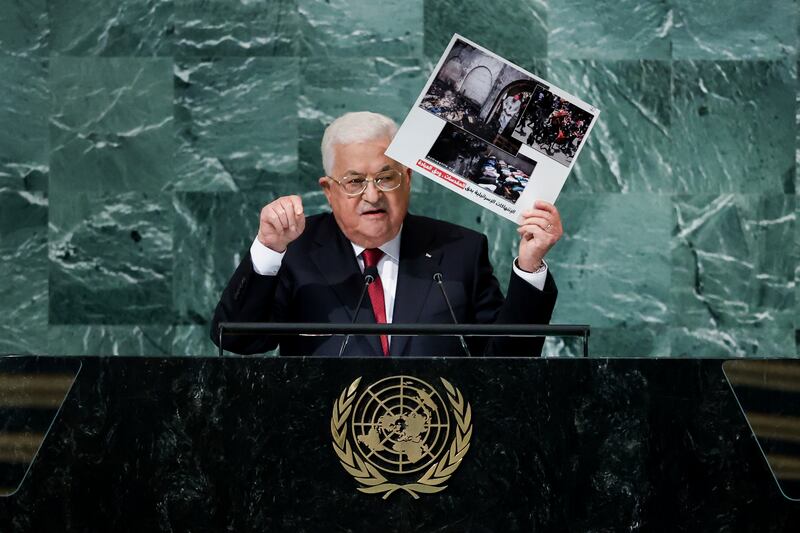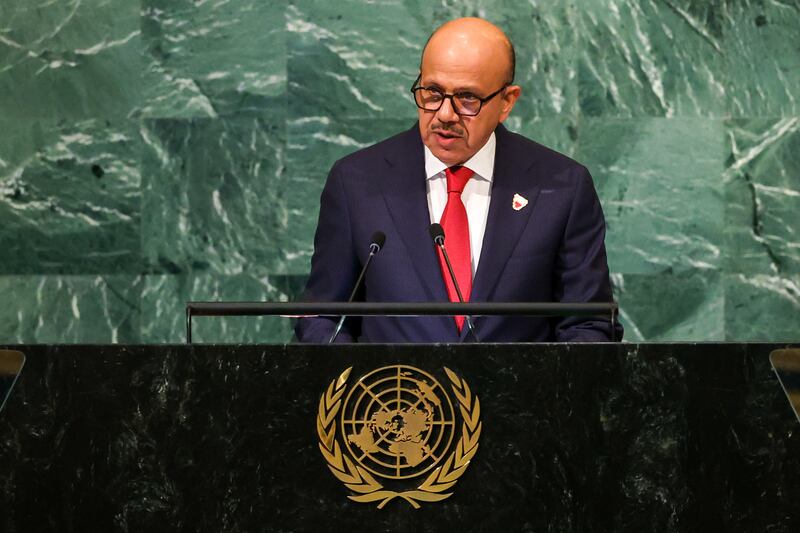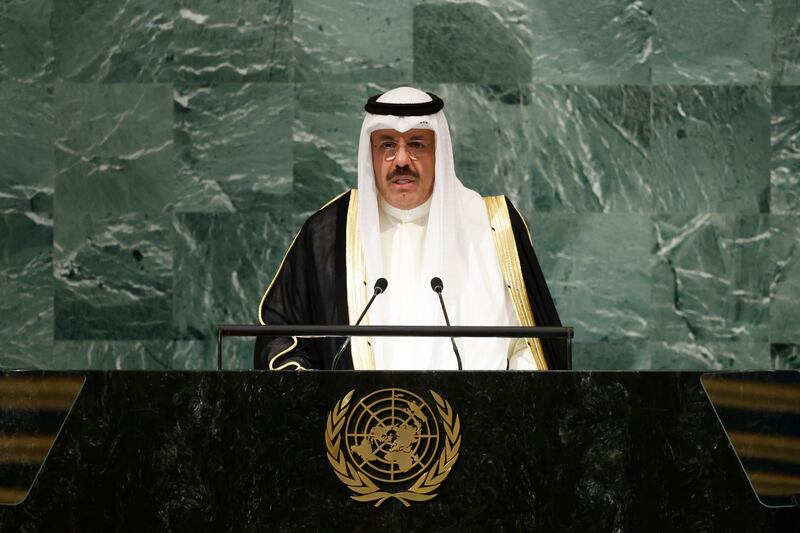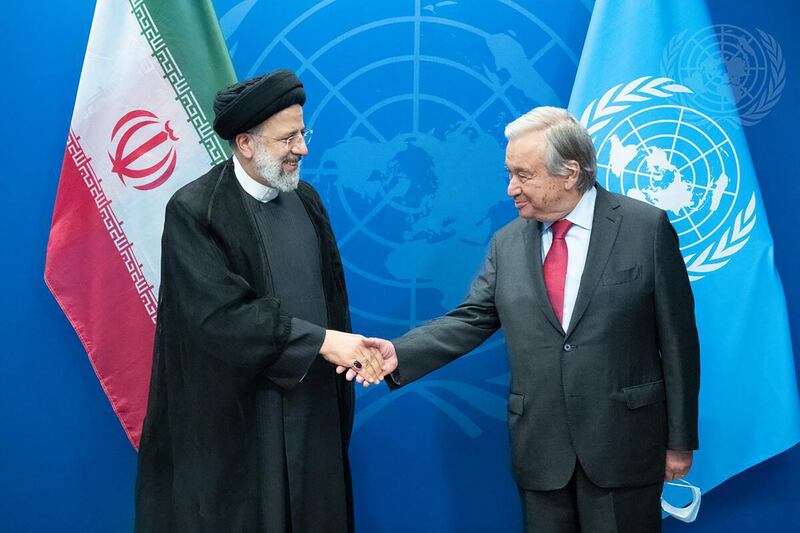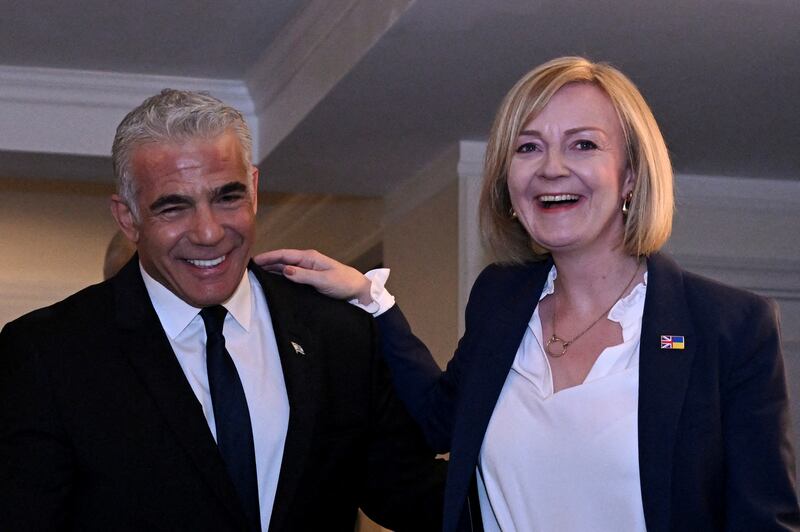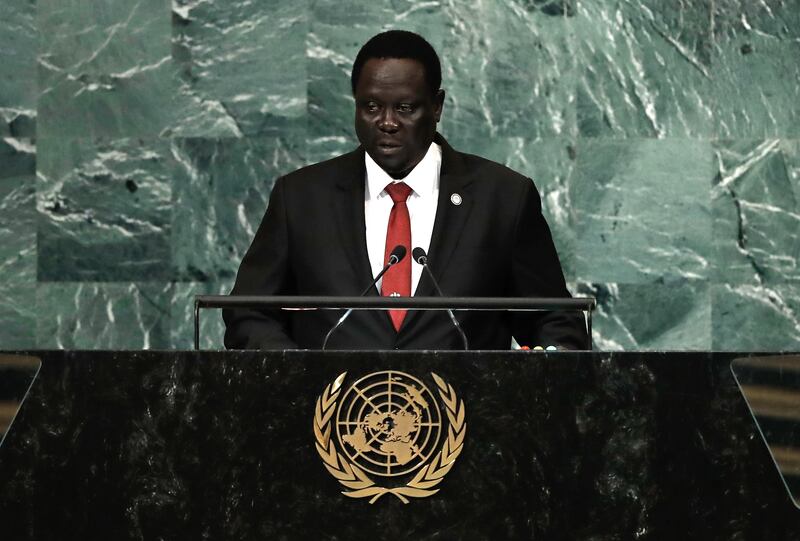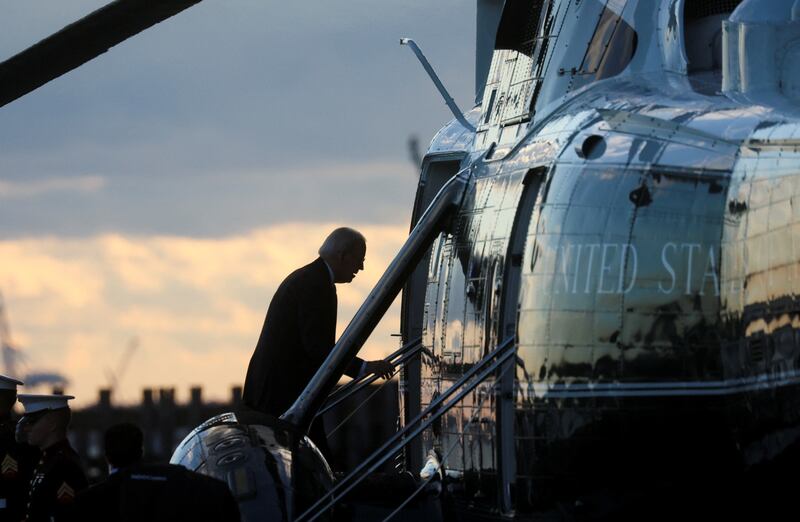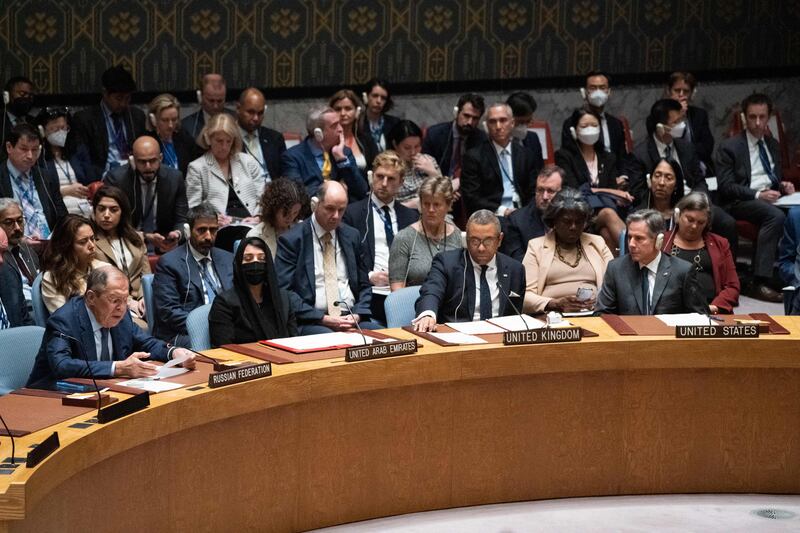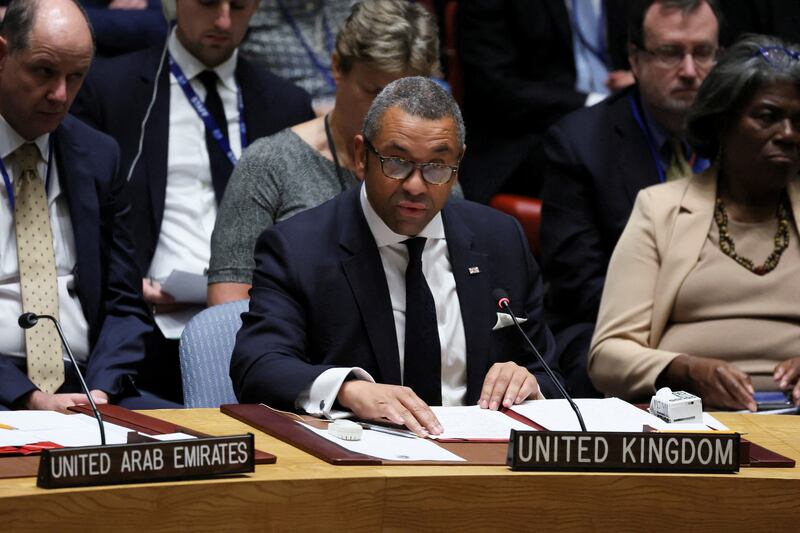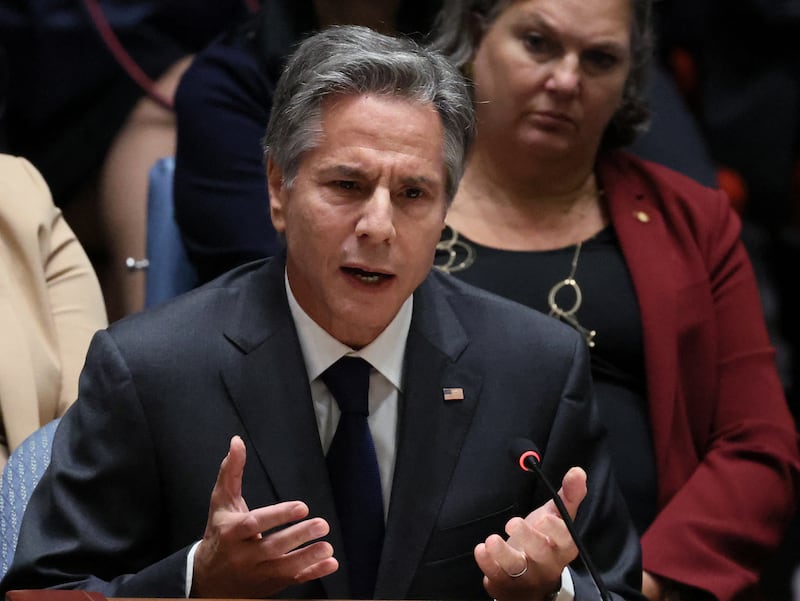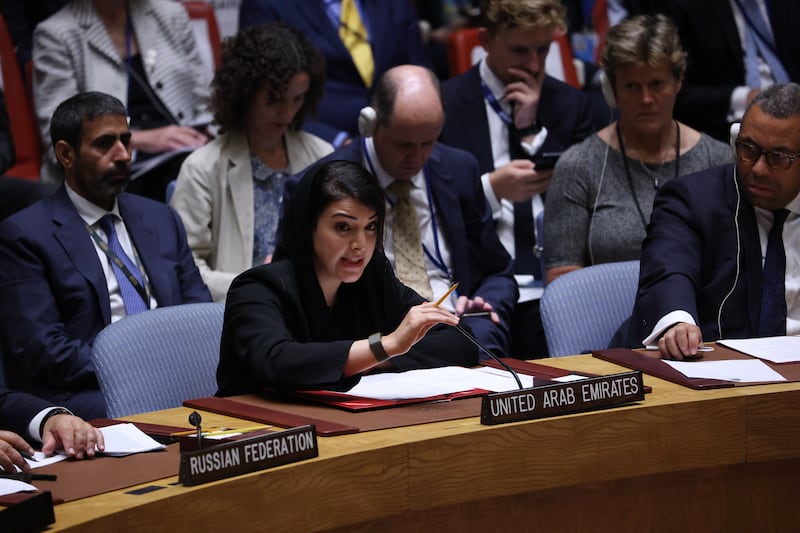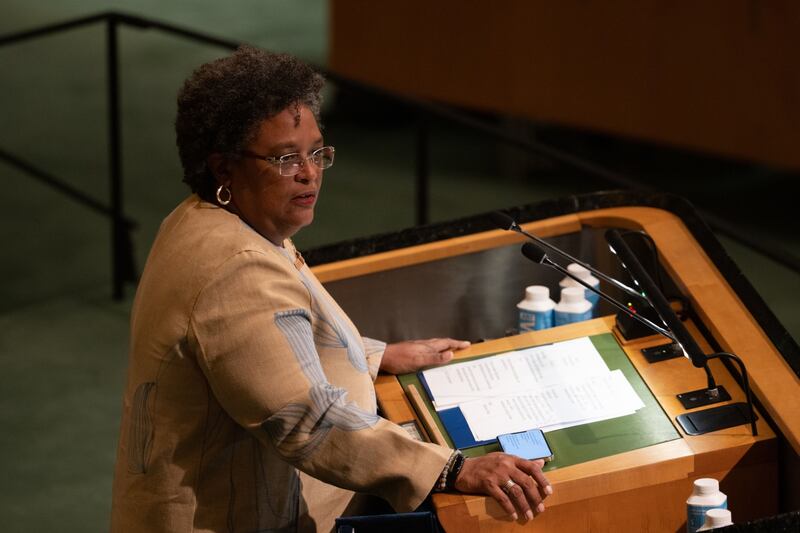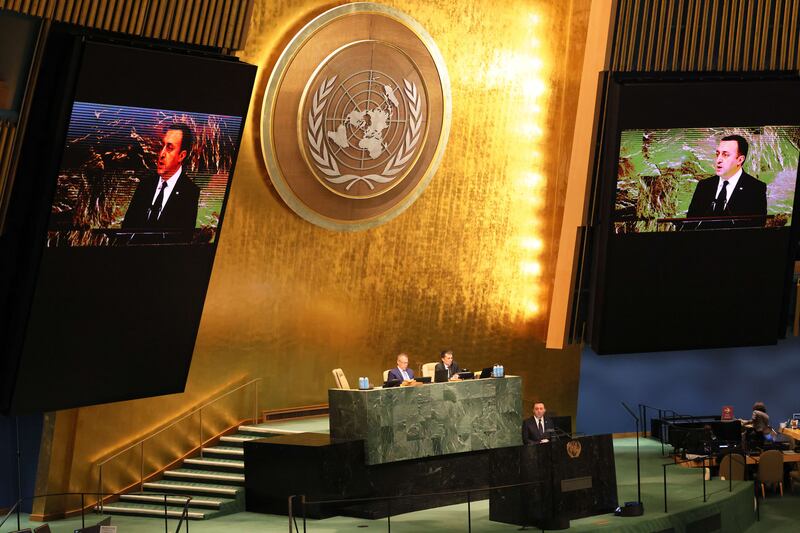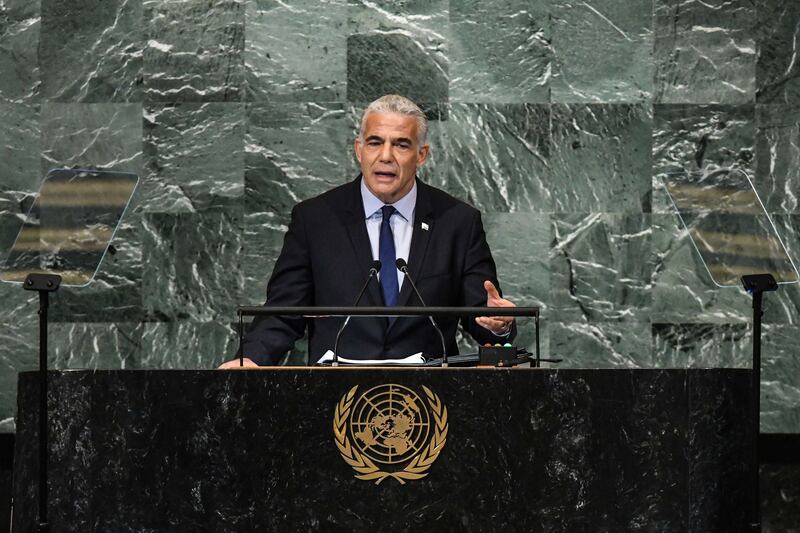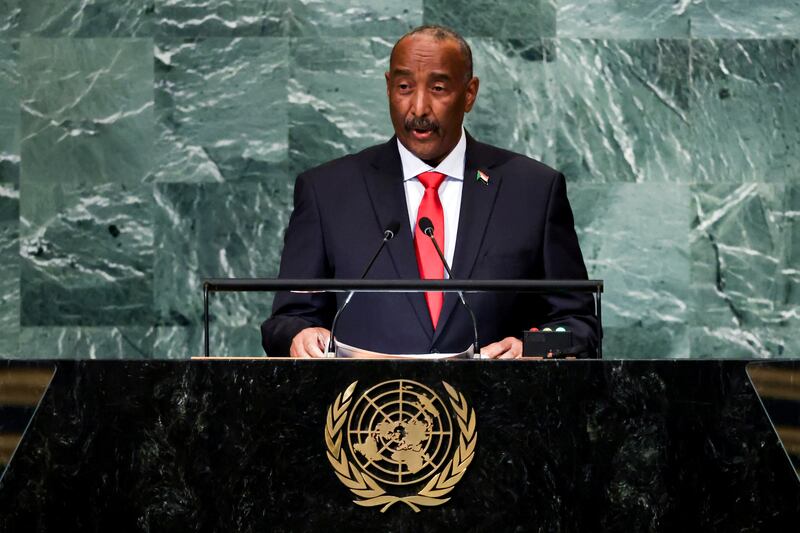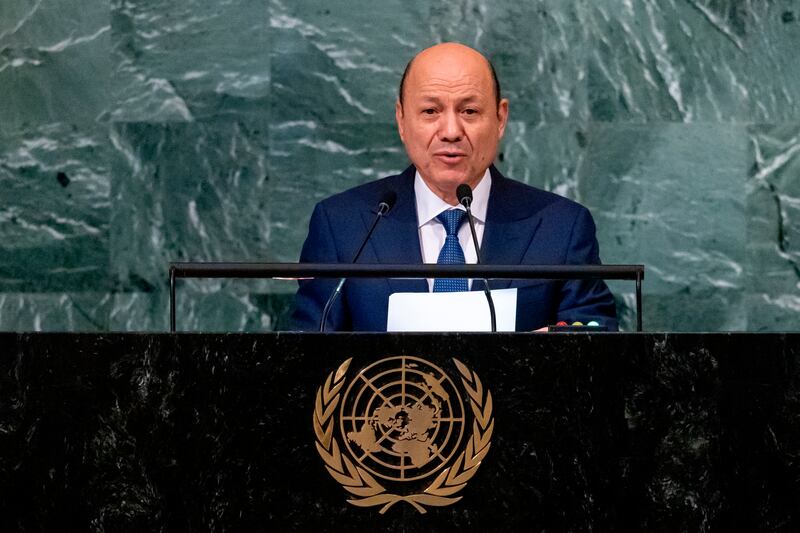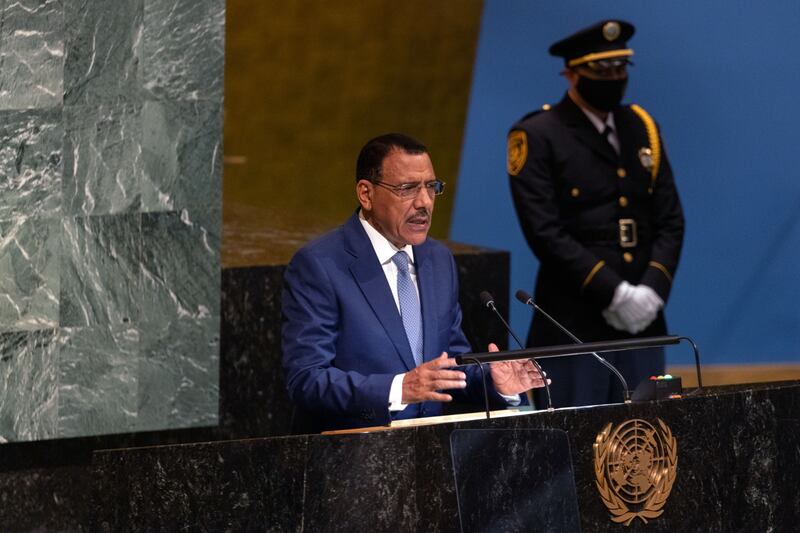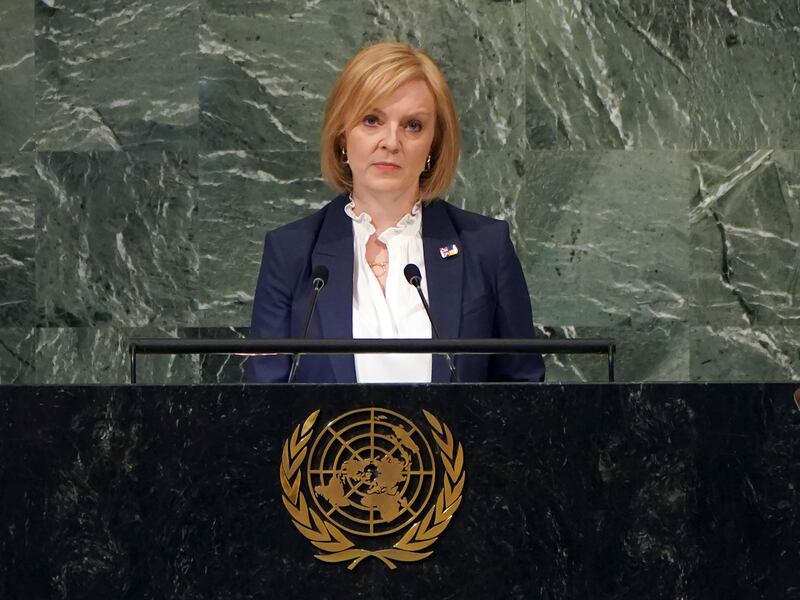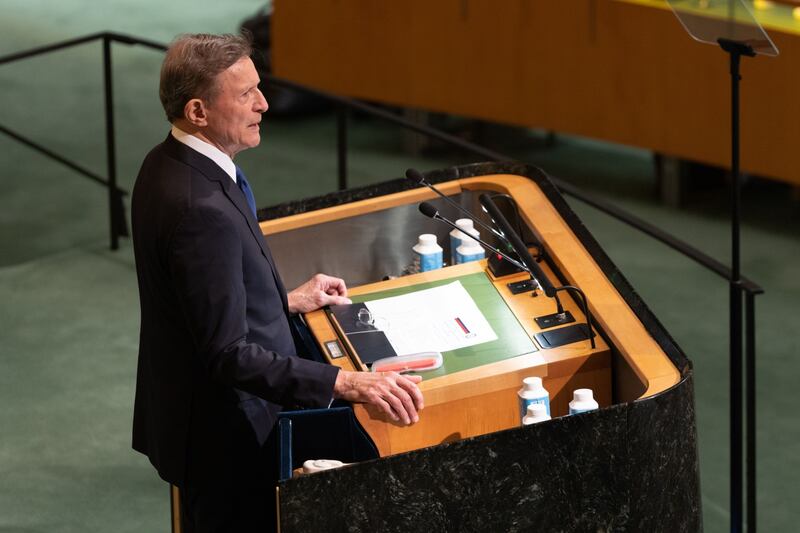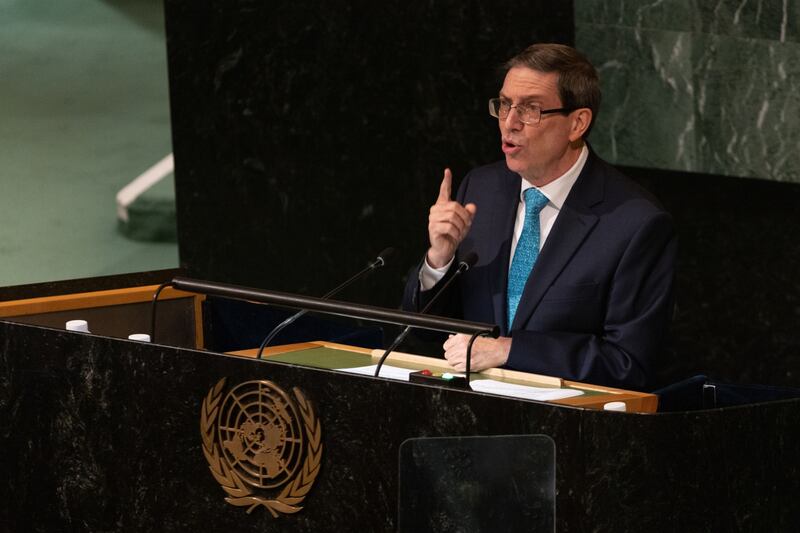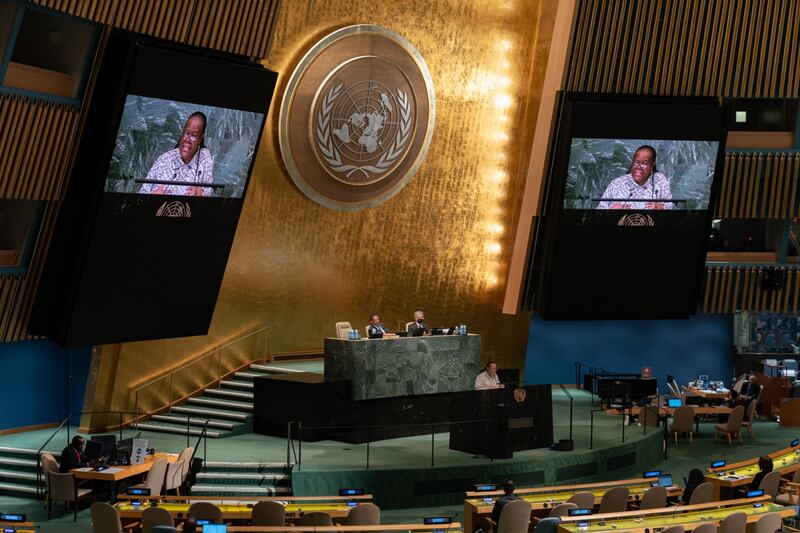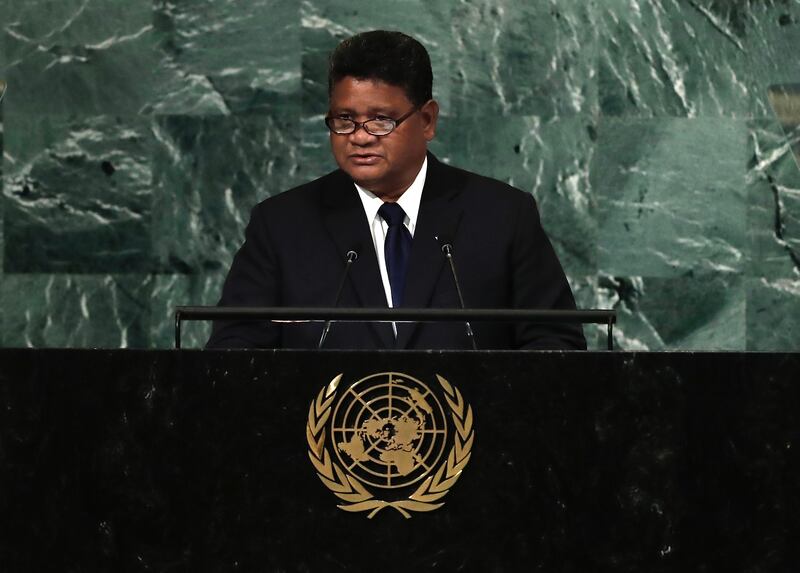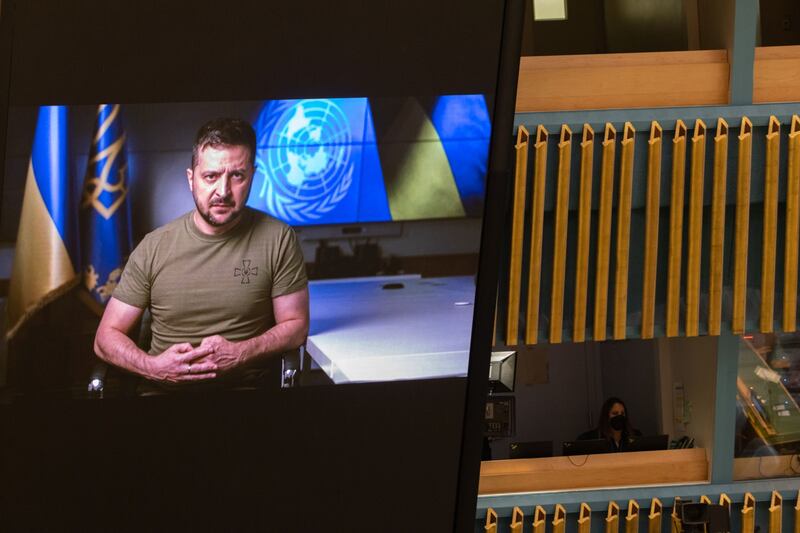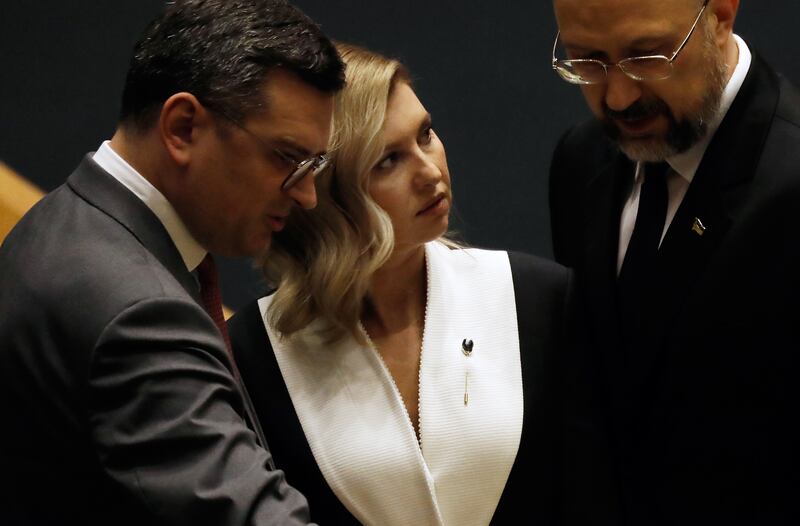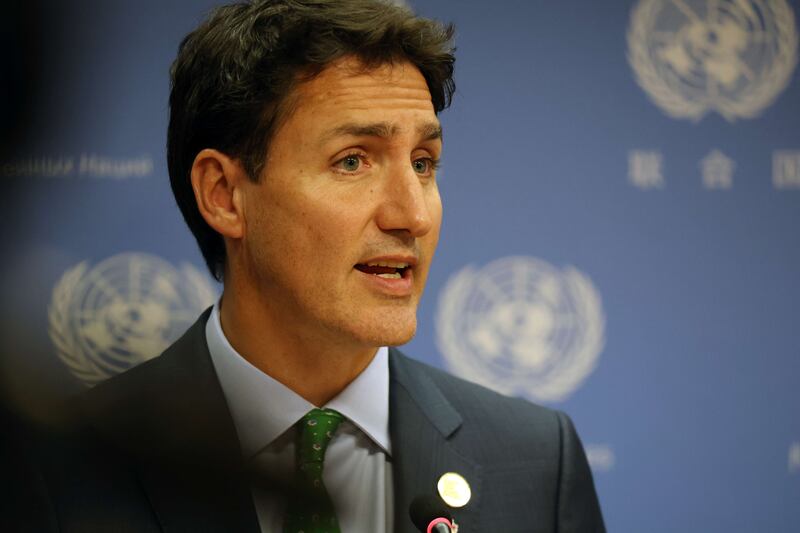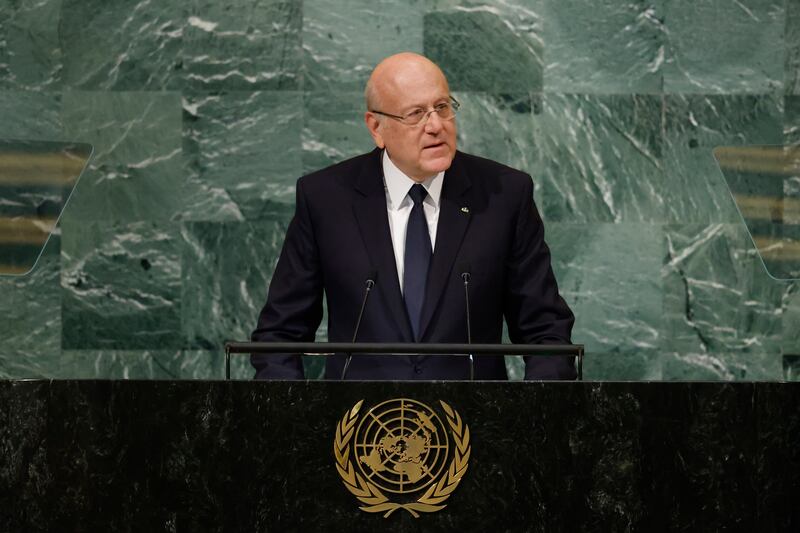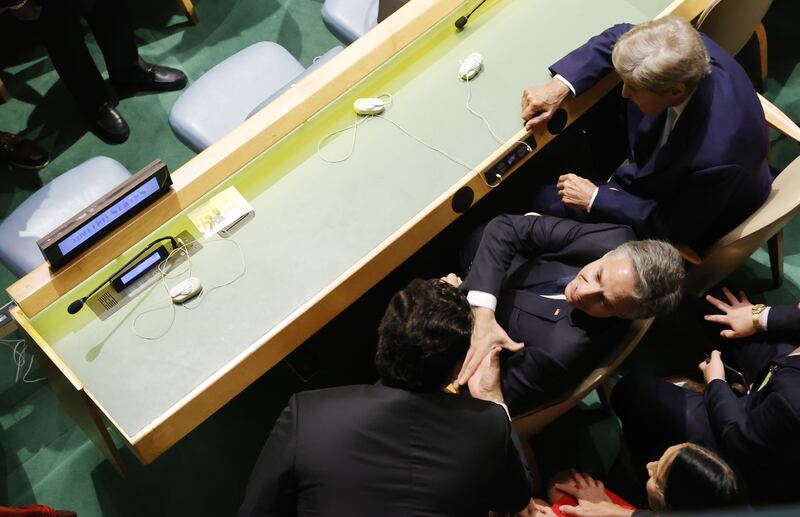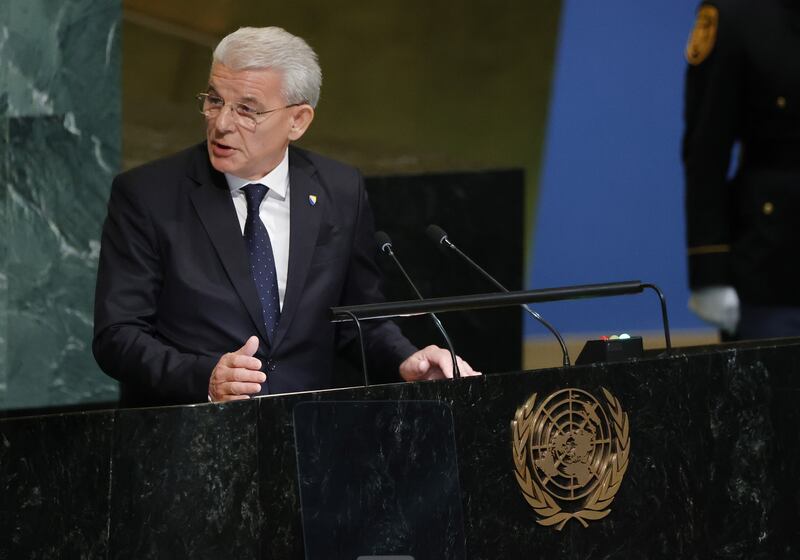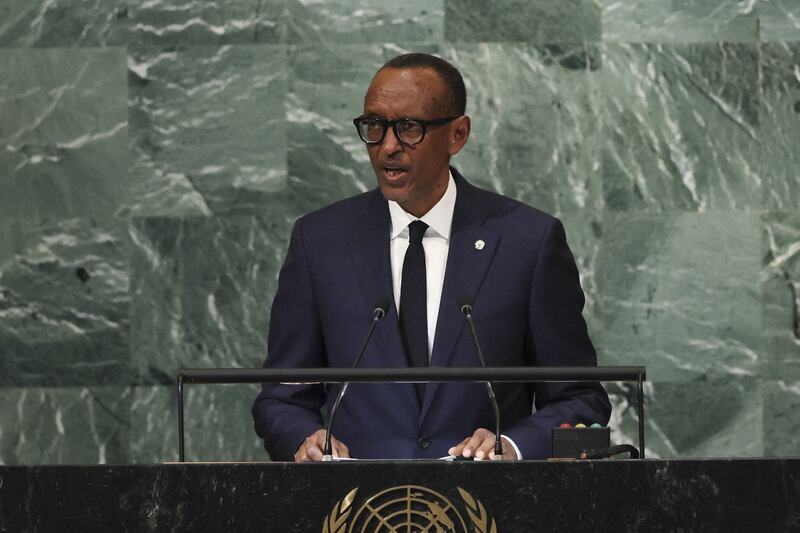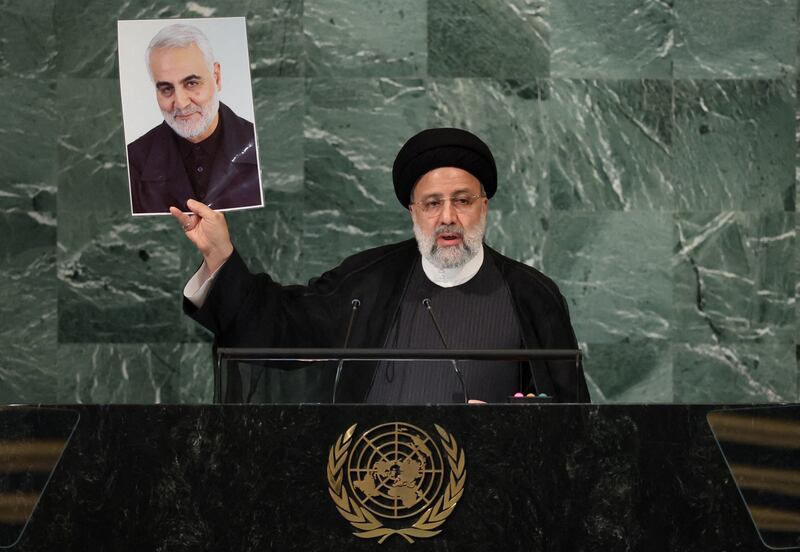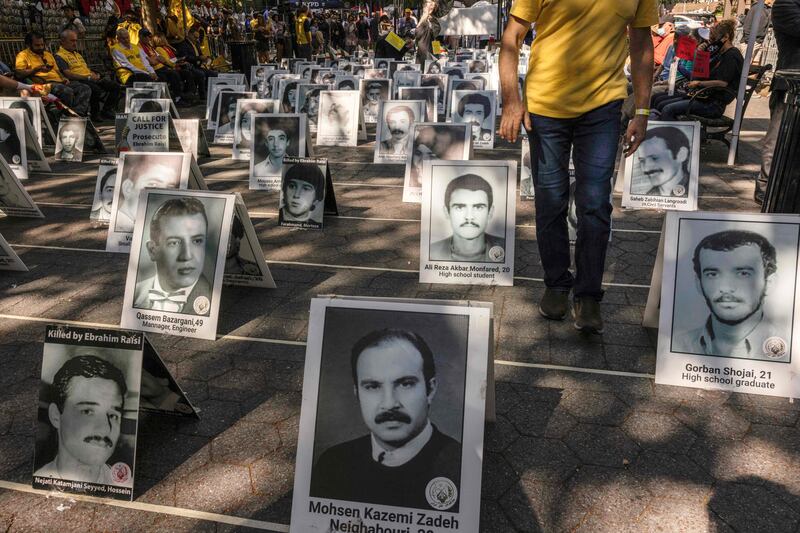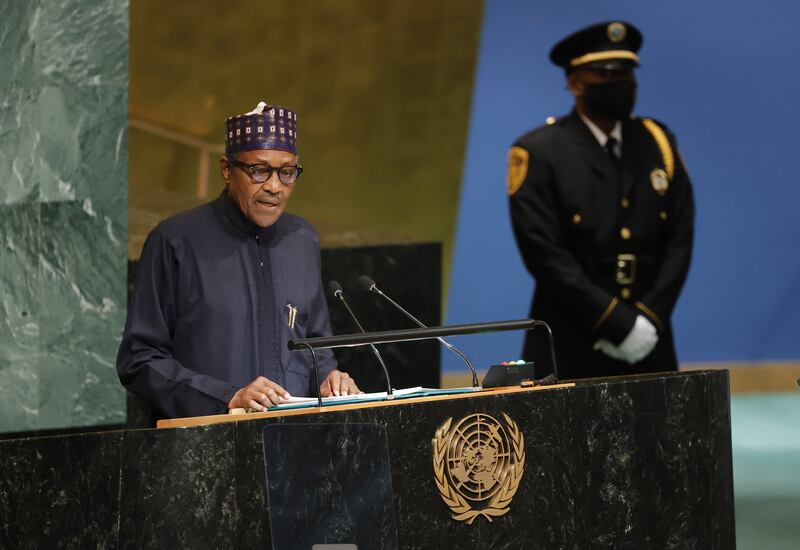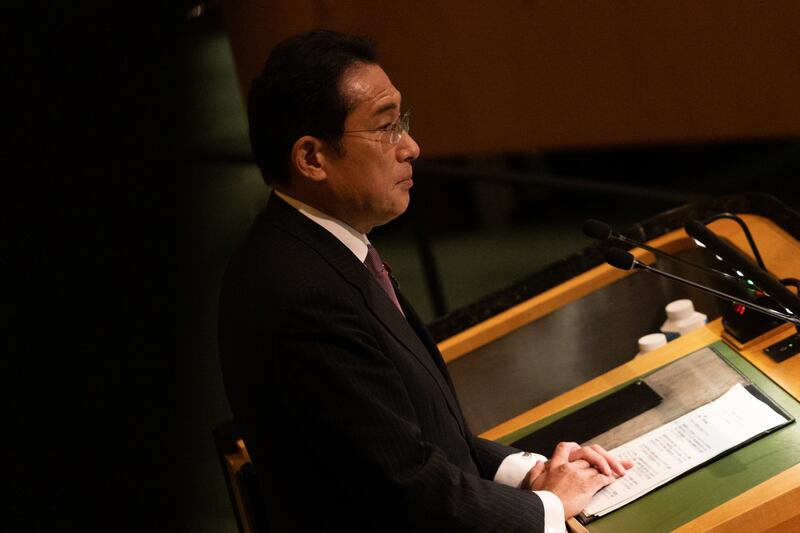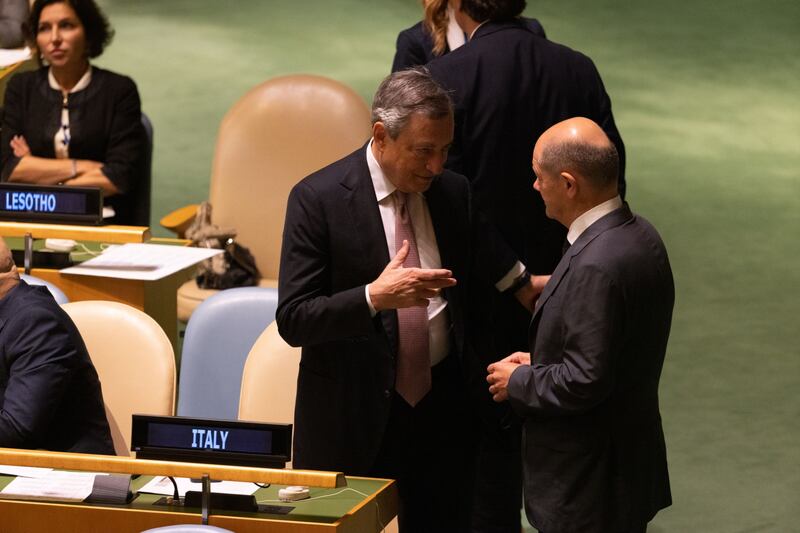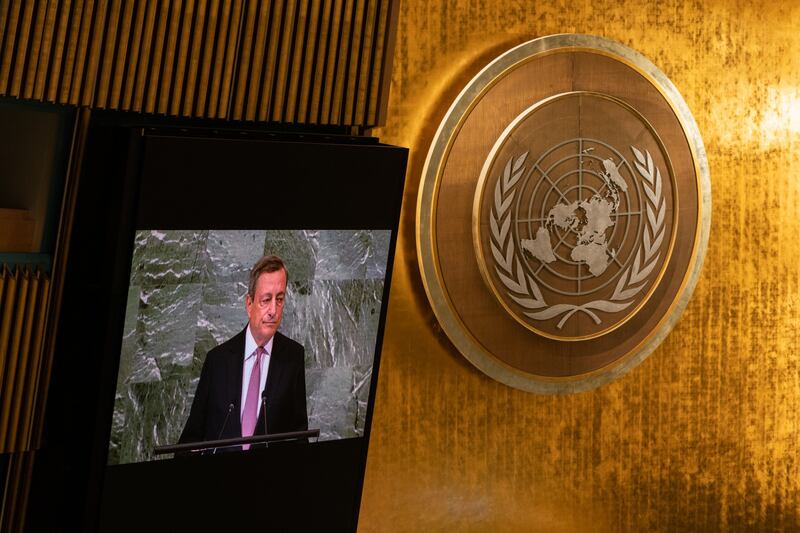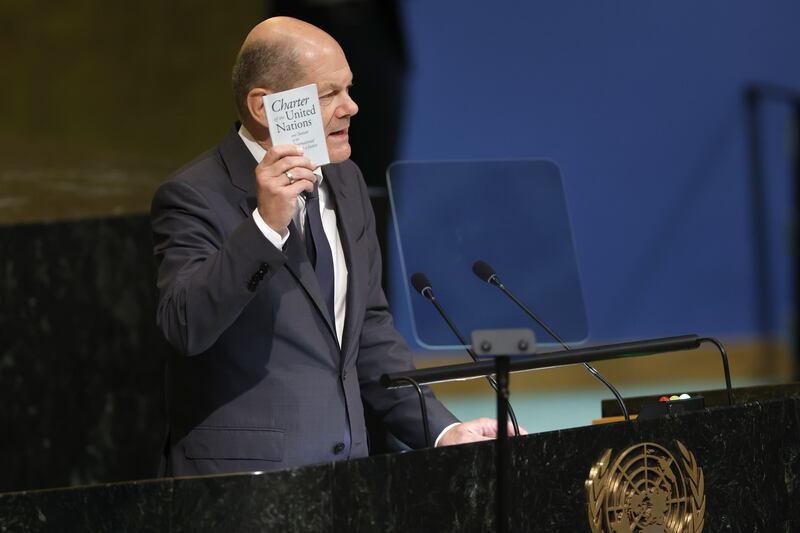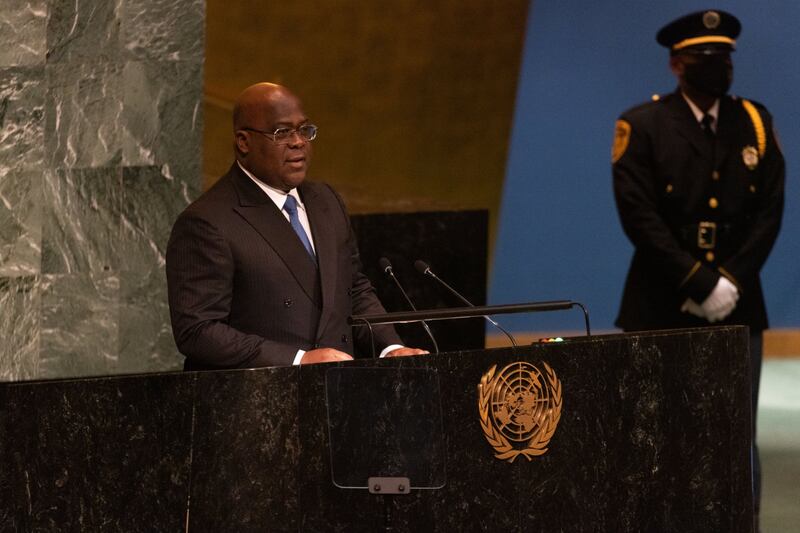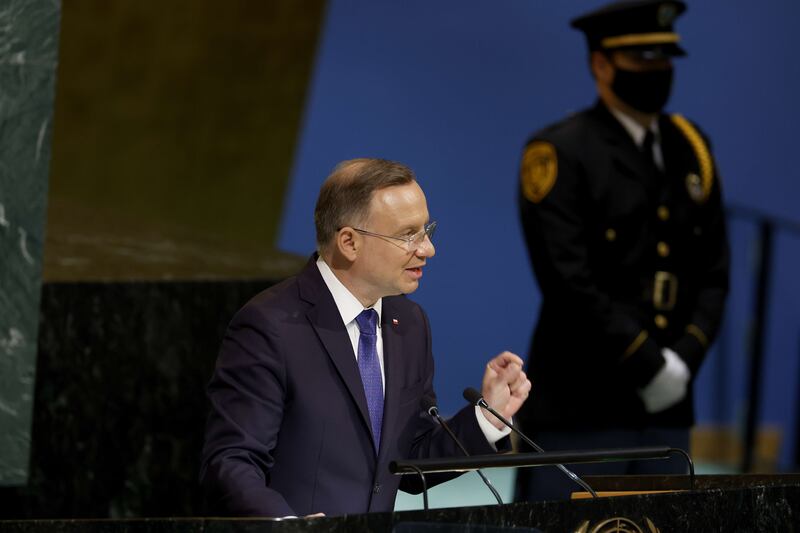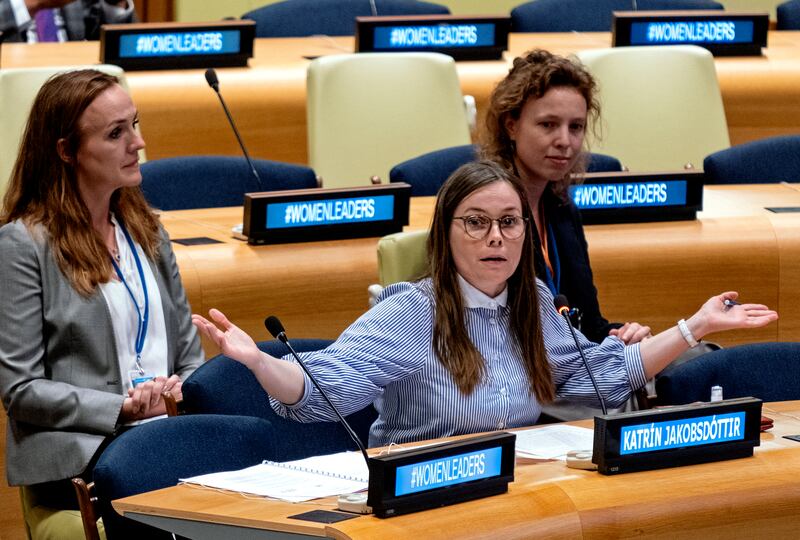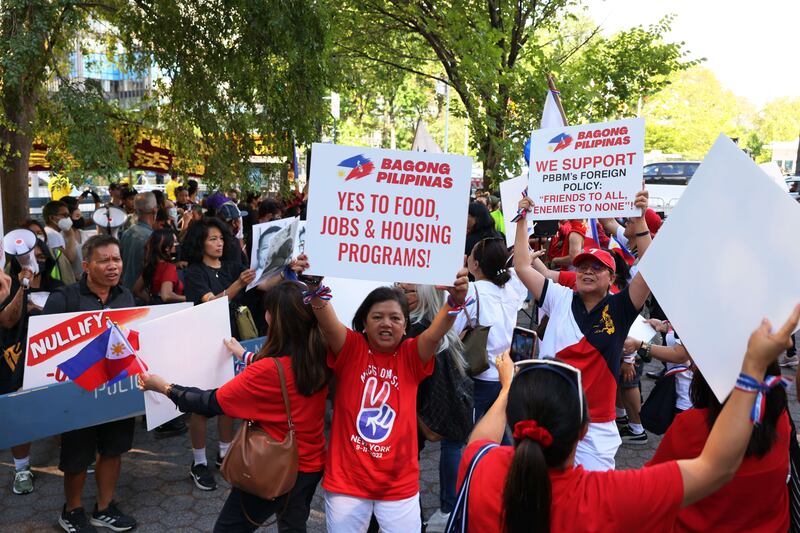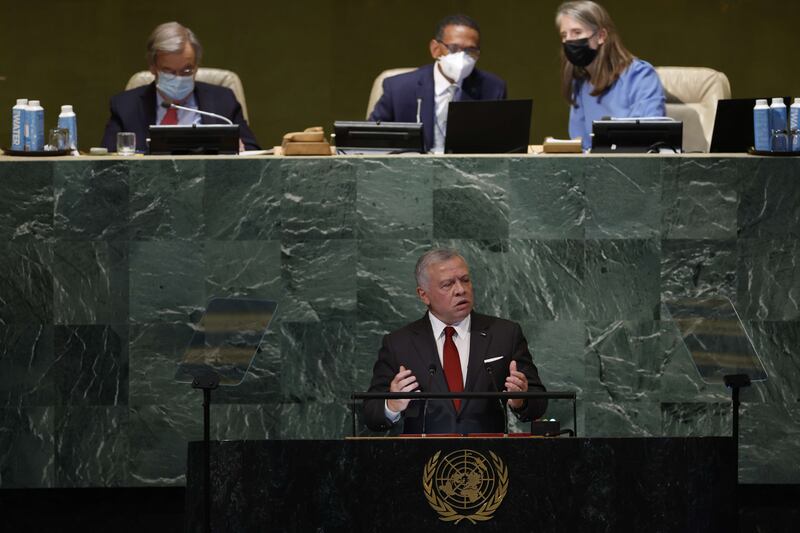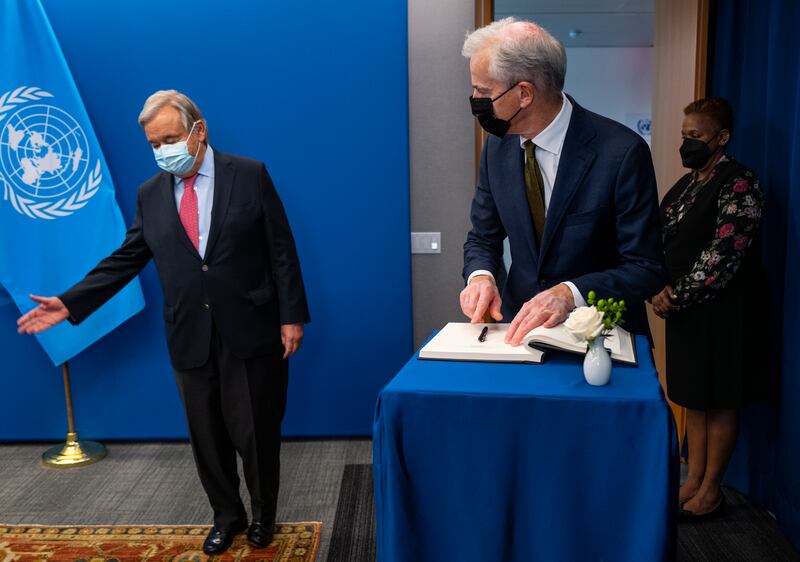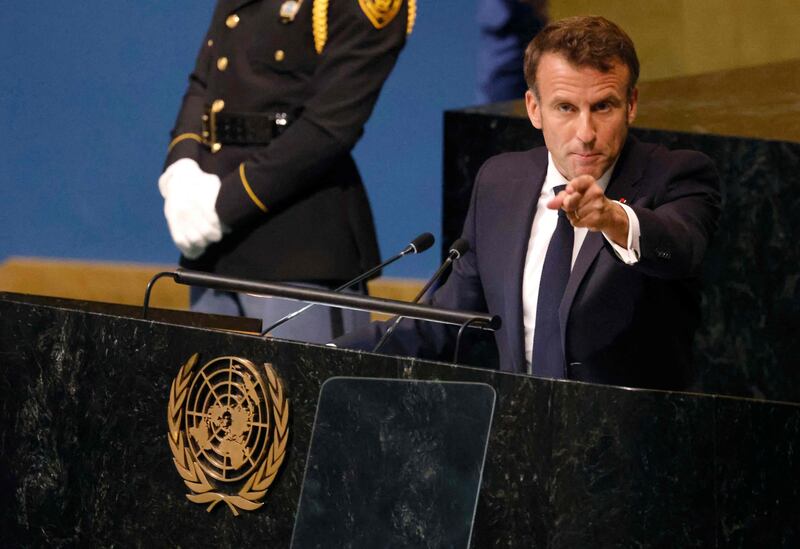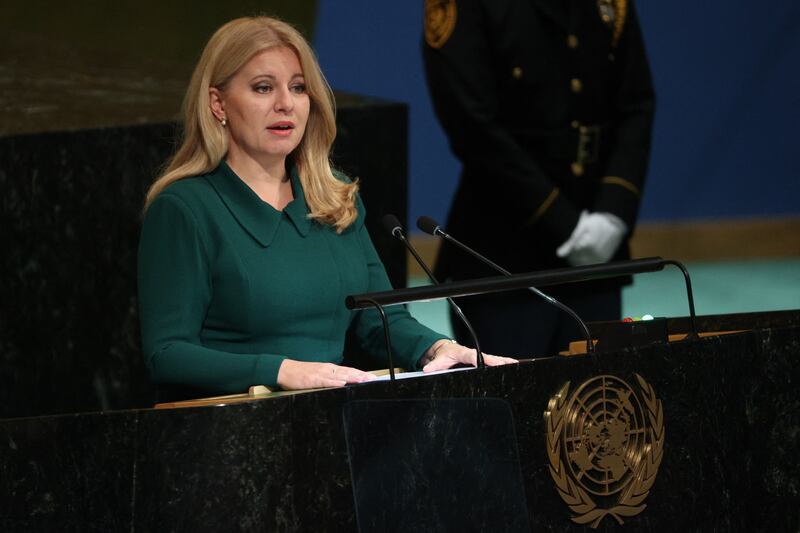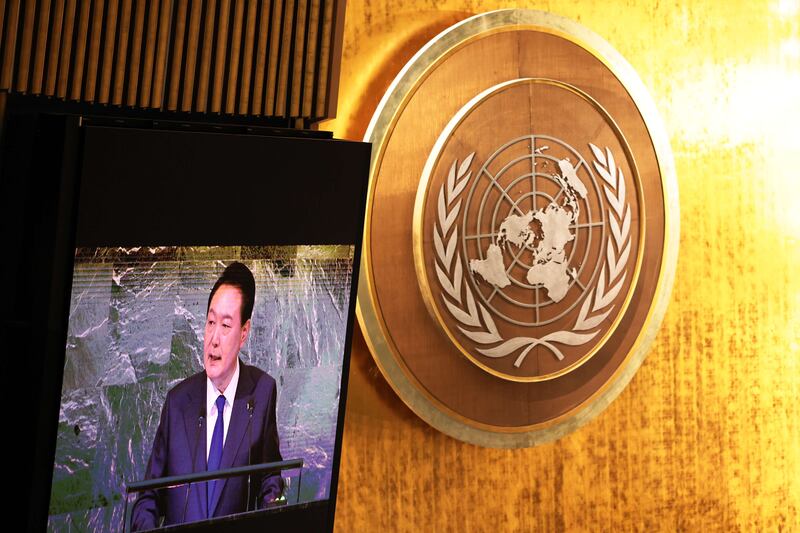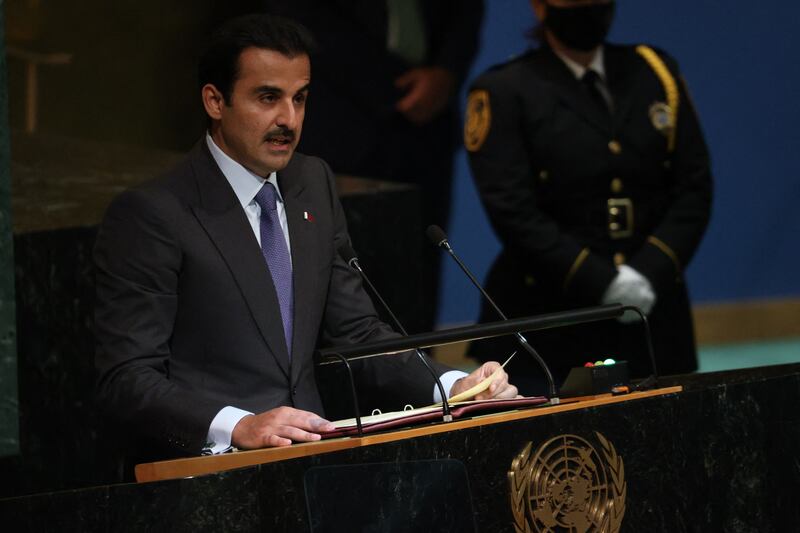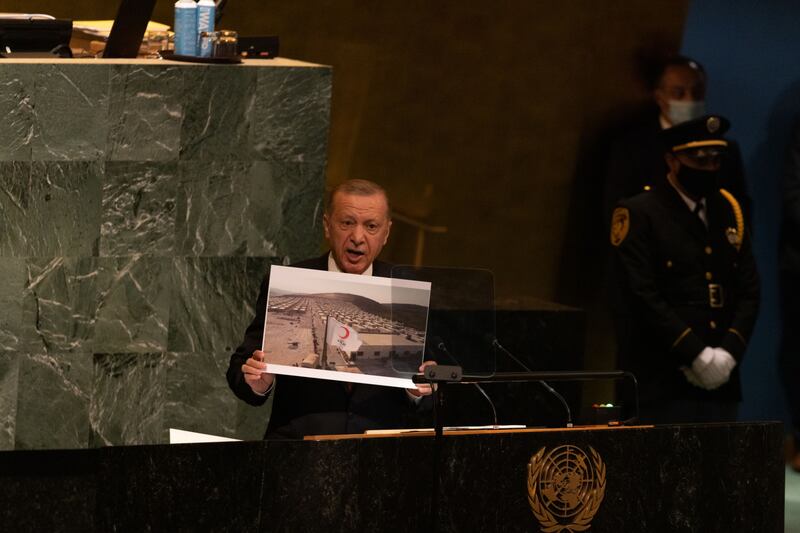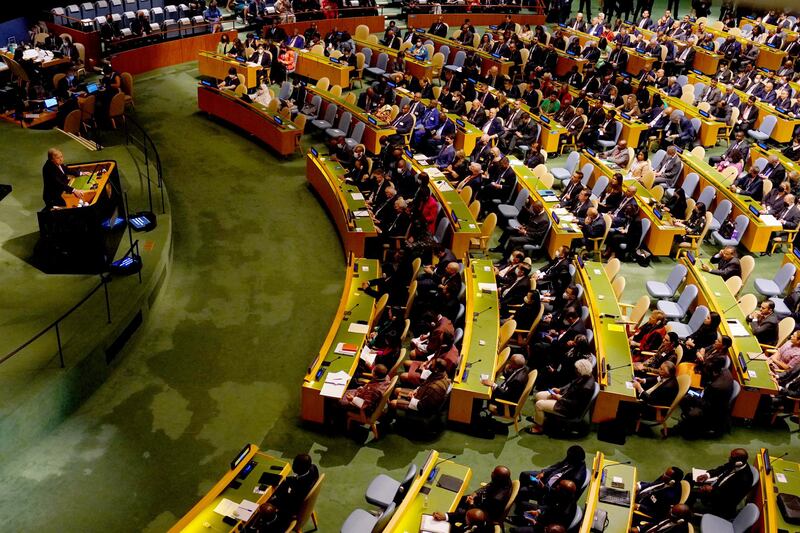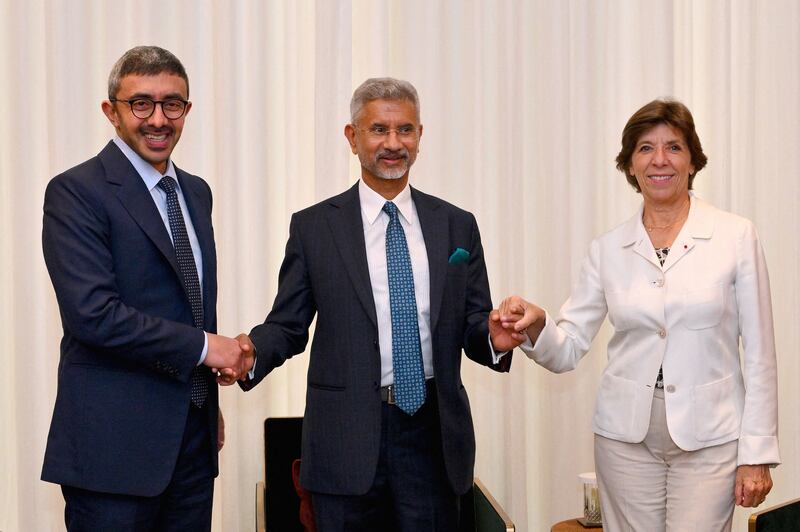Follow developments at the UN General Assembly as they happen.
Israeli Prime Minister Yair Lapid on Thursday voiced support, with caveats, for a two-state solution to the decades-long conflict with the Palestinians, in his speech to the UN General Assembly.
And Mr Lapid repeated Israel's position that it would do "whatever it takes" to stop Iran from developing a nuclear bomb.
The comments by the caretaker prime minister marked the first time in several years that an Israeli leader has mentioned a two-state solution at the UN General Assembly, and his remarks echo those of US President Joe Biden who on Wednesday advocated such an outcome.
"An agreement with the Palestinians, which is based on two states for two peoples, is the right thing for Israel's security, for the Israeli economy and for the future of our children," Mr Lapid said.
"Despite all the obstacles, even today a large majority of Israelis support the vision of a two-state solution. I am one of them."
Israel's only condition would be that any future Palestinian state is "peace-loving", he said. It cannot "become another terror base from which Israel's safety and existence are threatened".
Mr Lapid became interim prime minister after Naftali Bennett's ruling coalition collapsed in June.
A general election — Israel's fifth in three years — that is set for November 1 could see a return to power for Benjamin Netanyahu, a long-standing opponent of the two-state solution.
“Israeli Arabs are not our enemies, they are our partners in life,” Mr Lapid said.
Arab party Ra’am joined Mr Bennett's coalition in June 2021, the first time an Arab party had joined a ruling coalition.
Mr Lapid said Israel would do "whatever it takes" to stop Iran from developing a nuclear bomb.
He condemned “fake news” about Israel online, but the quickly referred to videos of Iranian women protesting against the death of Mahsa Amini, 22, who had been arrested three days earlier for allegedly breaking Iran’s strict hijab law.
He said the international community should use "military force" if Iran developed nuclear weapons.
Israel has been conducting an intense diplomatic offensive in recent months to try to convince the US and main European powers such as Britain, France and Germany not to renew the 2015 Iran nuclear deal.
For the past 10 days, various officials have suggested the deal might not be renewed until at least mid-November, a deadline that Mr Lapid has tried to use to push the West to impose a tougher approach in their negotiations.
"The only way to prevent Iran from getting a nuclear weapon is to put a credible military threat on the table," he said.
Only then can a "longer and stronger deal with them" be negotiated.
"It needs to be made clear to Iran that if it advances its nuclear programme, the world will not respond with words, but with military force," Mr Lapid said.
He praised the benefits of the Abraham Accords, which celebrated their second anniversary this month, and said he wished for more peace across the region.
“Israel seeks peace with our neighbours. All our neighbours. We are not going anywhere. The Middle East is our home,” he said.
“And we call upon every Muslim country — from Saudi Arabia to Indonesia — to recognise that, and to come talk to us. Our hand is outstretched for peace.”
- Agencies contributed to this report.
